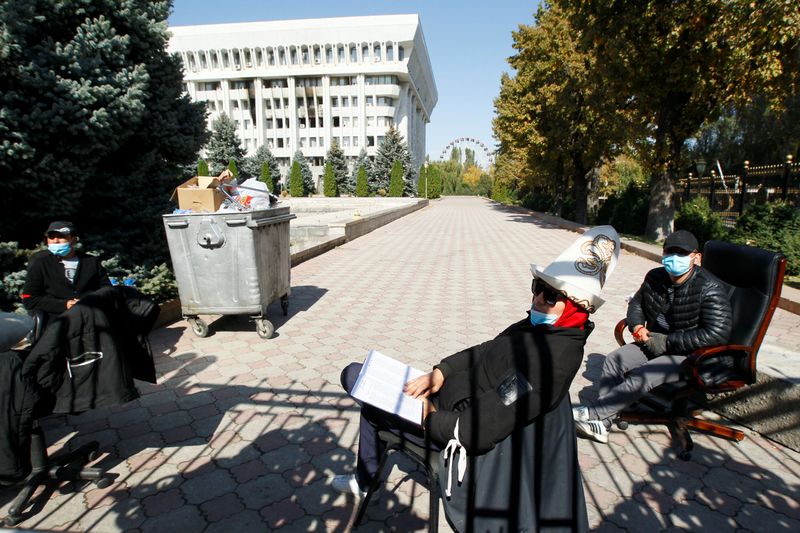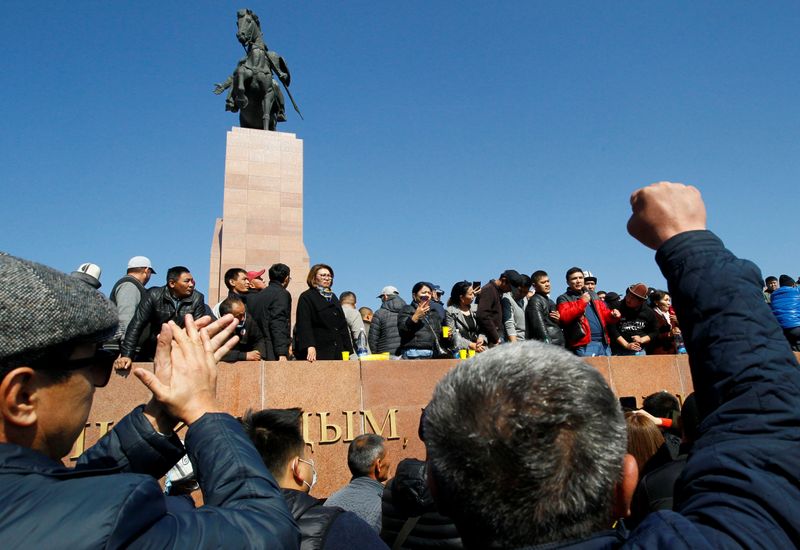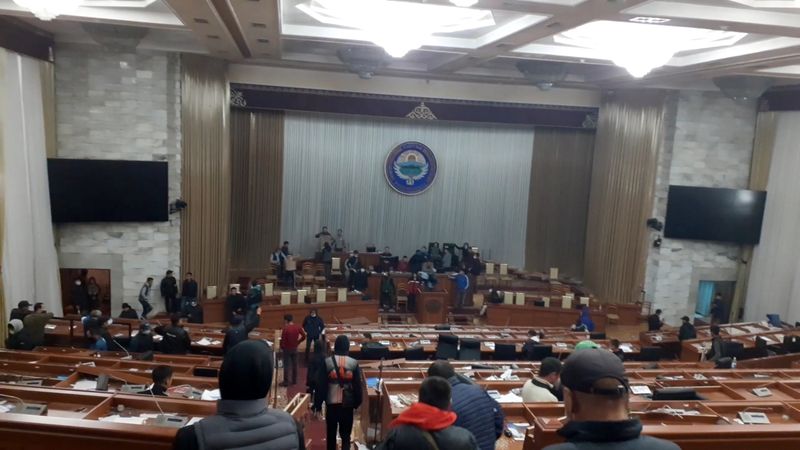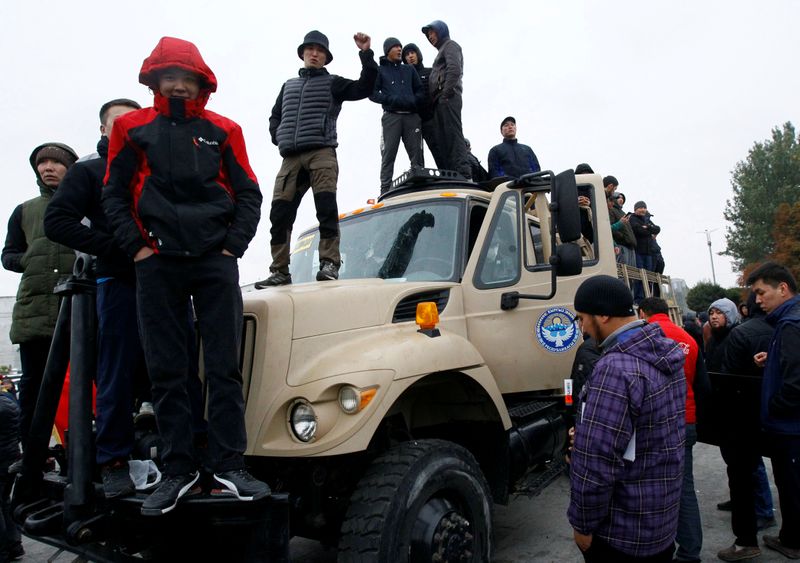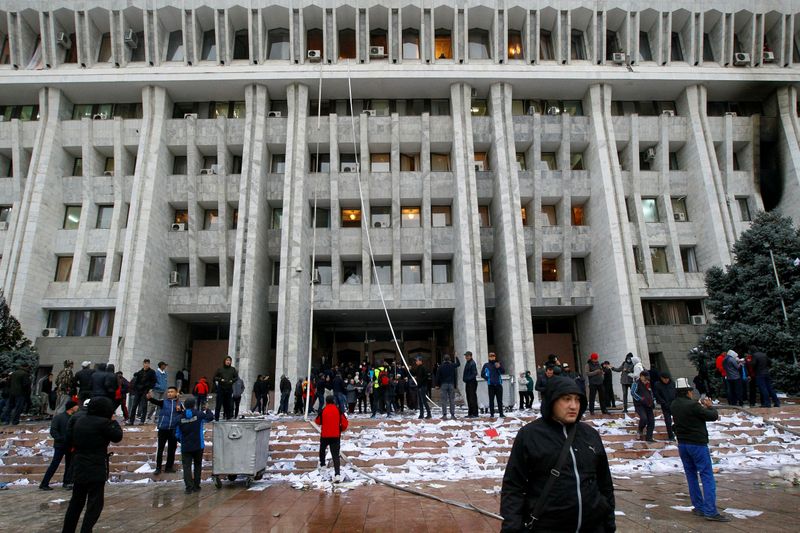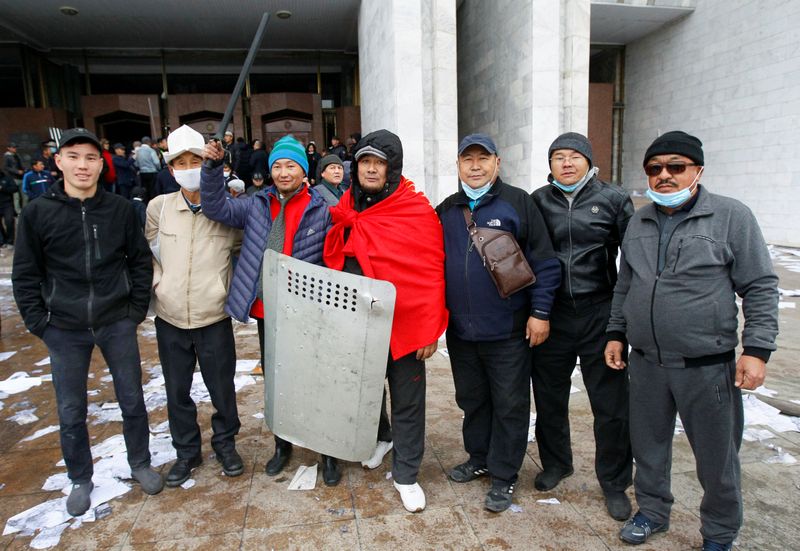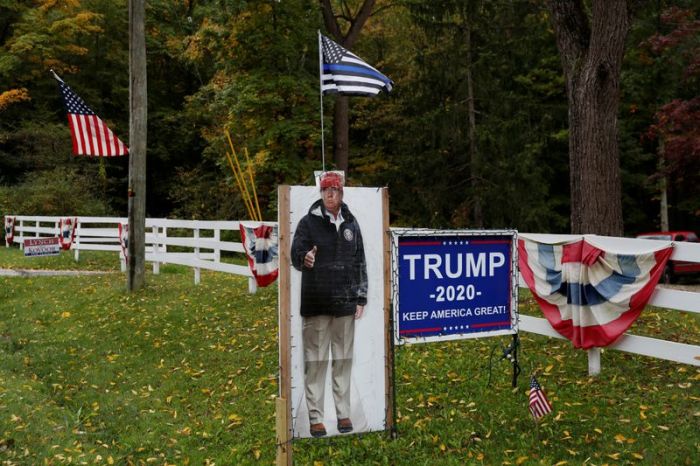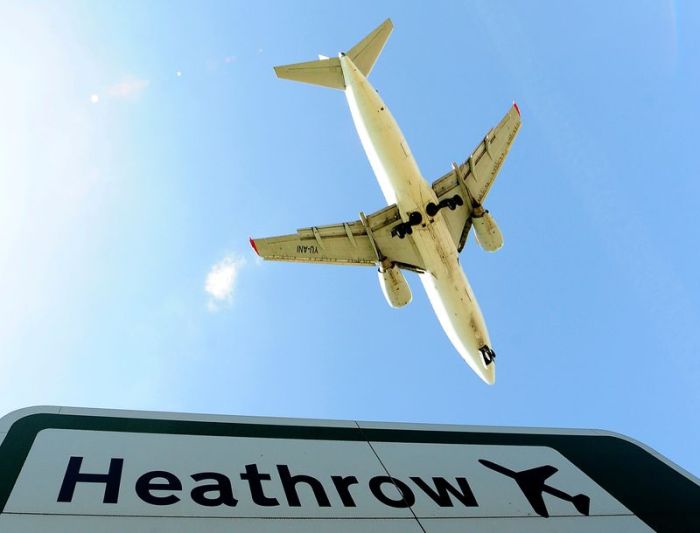BISHKEK (Reuters) – The Central Asian nation of Kyrgyzstan slid deeper into chaos as rival opposition factions jostled for power on Wednesday, a day after they stormed government buildings, forcing the prime minister to quit and a parliamentary election to be annulled.
Left isolated by the resignation of Prime Minister Kubatbek Boronov’s government late on Tuesday, President Sooronbai Jeenbekov called for all-party talks in a statement on Wednesday, reiterating his willingness to mediate.
Representatives of eight parties gathered at government headquarters on Wednesday evening to try to iron out their differences, but several large factions were absent while two rival candidates for the premiership emerged.
Two presidents have been overthrown in Kyrgyzstan in the past 15 years, and longtime ally Russia expressed concern as protests spread across the country in the wake of Sunday’s vote.
Kyrgyzstan borders China and hosts both a Russian military air base and a large Canadian-owned gold mining operation.
Russian President Vladimir Putin said on Wednesday Moscow was in touch with all the sides in the conflict and hoped that democratic process would be restored soon. China’s foreign ministry said it was highly concerned about the situation.
Kyrgyzstan’s State National Security Committee said in a statement that Omurbek Suvanaliyev, a veteran security official who has taken over as its acting head, spoke on Wednesday to Alexander Bortnikov, head of Russia’s Federal Security Service to discuss the situation in the country.
A total of 16 parties took part in Sunday’s election and 11 refused to accept the results, which had handed victory to two establishment groups. As protests grew, the election commission annulled the vote.
At least three distinct groups have now attempted to claim leadership. The first was the Coordination Council set up on Tuesday and largely made up of established political parties opposing Jeenbekov.
Another group calling itself the People’s Coordination Council surfaced on Wednesday, uniting five lesser-known opposition parties whose leaders have not held any senior government positions and calling for a purge of the elite.
Three more parties accepted that group’s invitation to a meeting on Wednesday to work out a joint statement, while 30-year-old businessman Tilek Toktogaziyev said the faction would back him as an interim PM.
Finally, the Ata Zhurt political party has tried to outmanoeuvre competitors by getting parliament to nominate its candidate Sadyr Zhaparov – freed from prison by protesters just hours earlier – for prime minister on Tuesday night.
However, an angry mob then broke into the hotel where parliament convened, forcing Zhaparov to flee through a back door, according to Kyrgyz media.
It was not clear when parliament might convene again to confirm him or his rival as premier. One MP posted a video on Facebook showing about 40 deputies discussing the idea of impeaching Jeenbekov in a conference room on Wednesday night.
Making a late night appearance on television, Zhaparov said he would propose a constitutional reform before holding presidential and parliamentary elections in two to three months.
While opposition parties have made rival claims to power, the establishment parties that claimed initial victory in the election have largely kept quiet, accepting the decision to annul the vote. Jeenbekov has told his supporters not to confront the protesters to avoid escalation.
But the split among opposition parties and power grabs by competing factions have pitched the nation of 6.5 million people into uncertainty. Kyrgyz security forces appeared to avoid siding with any of the factions although their support could eventually help decide the winner.
Rallies by different parties’ supporters continued in Bishkek throughout Wednesday, with minor scuffles reported between backers of rival politicians.
Residents in the capital Bishkek quickly formed vigilante neighbourhood watch units to reinforce police, having suffered during violent revolts followed by looting in 2005 and 2010.
There were also scuffles overnight between vigilantes and protesters who tried to force their way into government buildings or attacked businesses such as shops and restaurants, according to a report by local news website 24.kg.
Kyrgyzstan’s central bank, in turn, said it had disabled SWIFT and other cross-border money transfer systems to prevent capital flight until the situation stabilises.
(Reporting by Olga Dzyubenko; Writing by Olzhas Auyezov; Editing by Simon Cameron-Moore and Peter Graff/Mark Heinrich)

